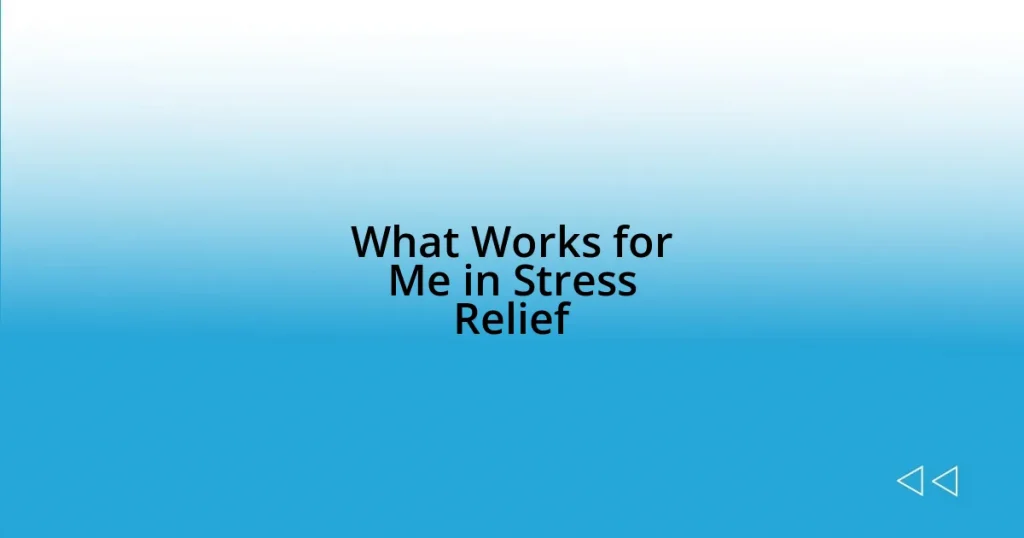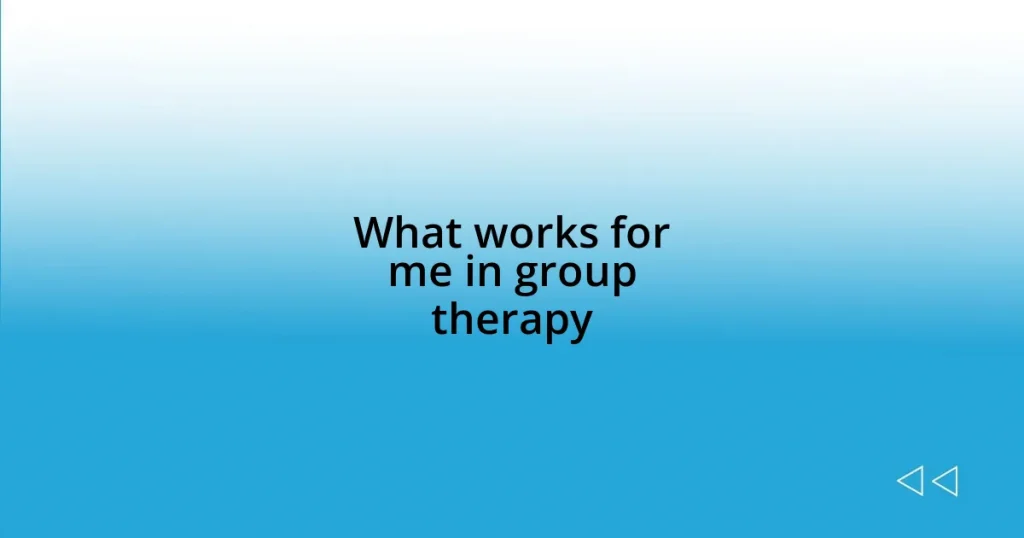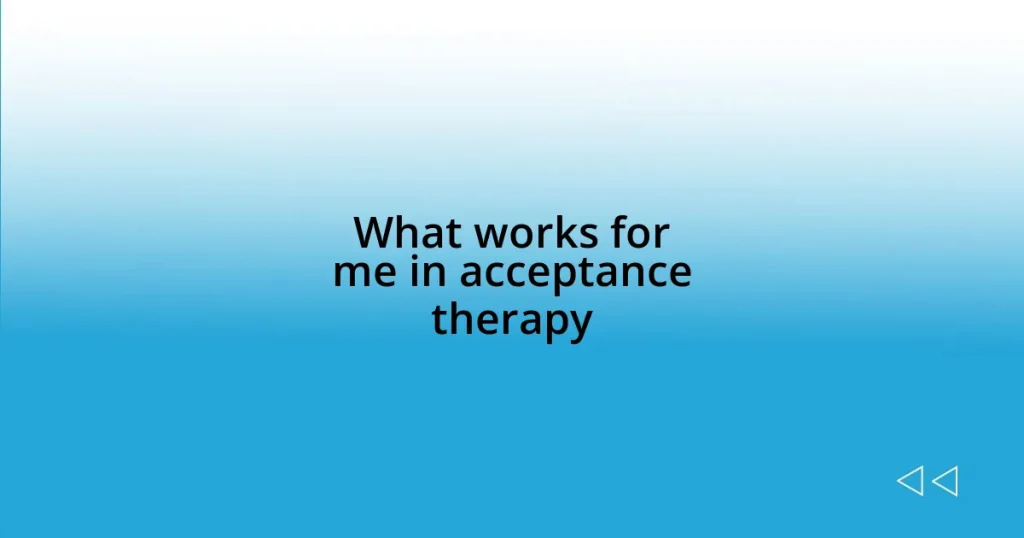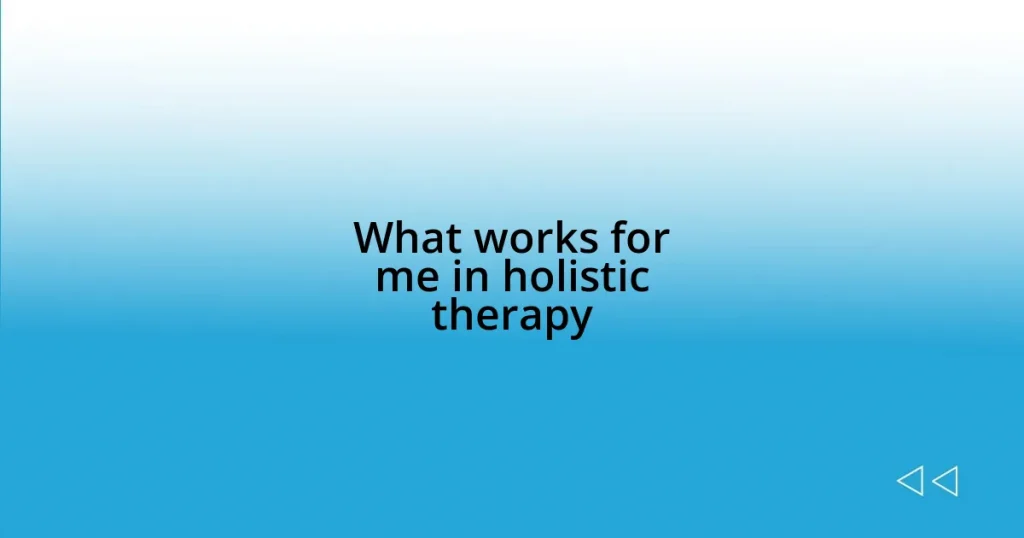Key takeaways:
- Stress is a common experience that can impact mood, relationships, and cognitive function, highlighting the need for effective management techniques.
- Mindfulness practices, such as deep breathing, journaling, and engaging in physical activity, can provide immediate relief and long-term benefits.
- Regular evaluation and adjustment of stress management strategies are crucial for maintaining mental health and adapting to changing circumstances.
- Incorporating mindfulness into daily routines transforms mundane tasks into moments of calm and reflection, enhancing overall well-being.
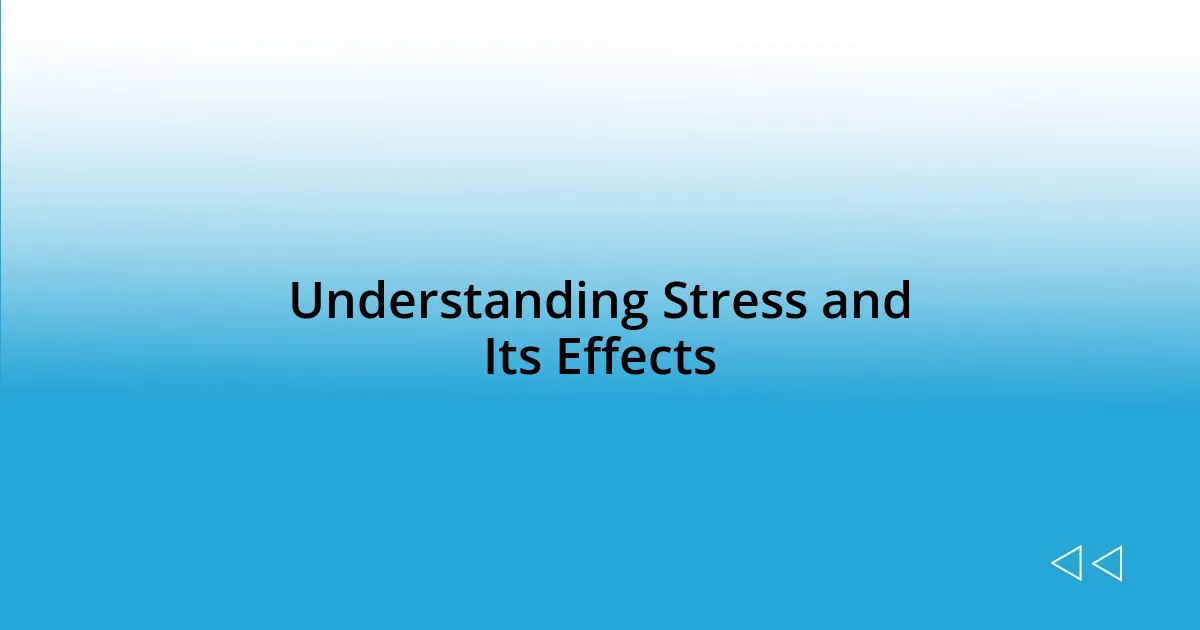
Understanding Stress and Its Effects
Stress is an unavoidable part of our lives, often creeping in during busy periods or challenging situations. I remember a time when I was juggling multiple deadlines; my heart raced, and my mind felt like a chaotic storm. It made me realize how stress can manifest physically, leading to headaches and fatigue, and made me question how much control we really have over our responses to daily pressures.
The effects of stress extend beyond the immediate discomfort; they can impact our mood and relationships too. During particularly stressful times, I found myself irritable, snapping at loved ones. Have you ever noticed how stress can create a cycle where one bad day leads to another? It’s crucial to recognize this pattern, as understanding our triggers is the first step toward effective management.
Moreover, stress can alter our cognitive functions, making it harder to focus and think clearly. I’ve had moments where I stared blankly at my to-do list, feeling paralyzed. Wouldn’t it be great to have a toolkit for those times when stress clouds our judgment? This realization has pushed me to explore various methods for stress relief, knowing that how we handle stress can greatly influence our overall well-being.
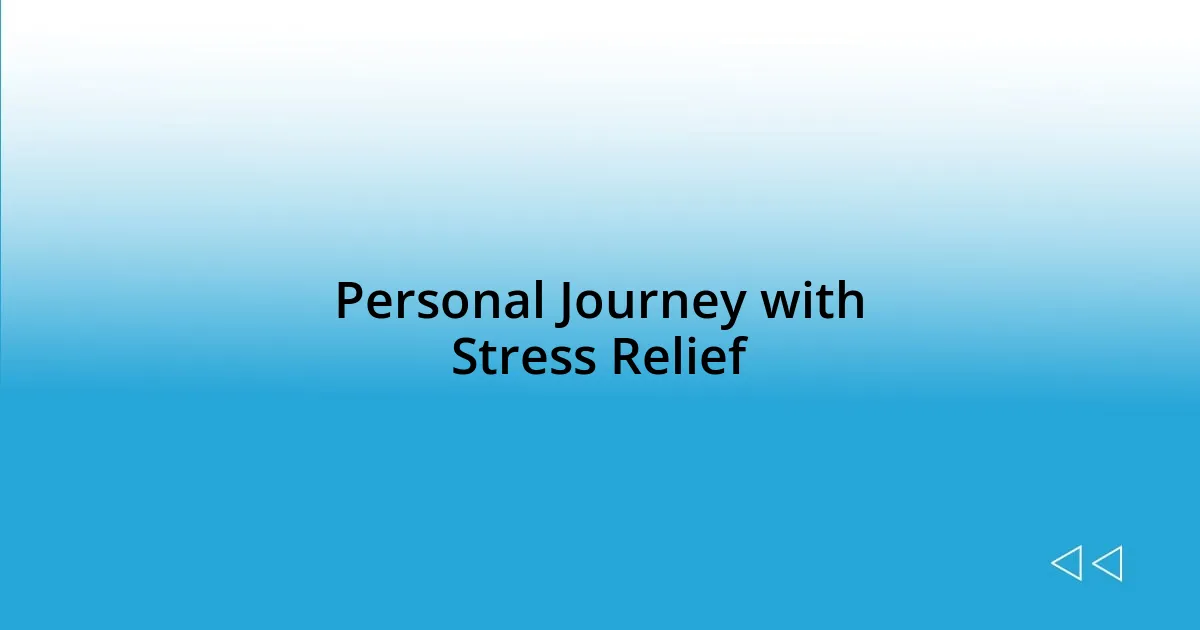
Personal Journey with Stress Relief
In my quest for effective stress relief, I began to realize that simple moments of mindfulness made a significant difference. One particularly hectic week, I took a short stroll during my lunch breaks, soaking in the fresh air and nature around me. Those few minutes allowed my mind to shift gears and recharge, showing me that sometimes, a change of scenery can work wonders.
- Embracing daily meditation practices became a lifeline. I would sit in my favorite nook, focusing on my breath, and suddenly, the chaos faded into the background.
- Discovering the power of journaling was another revelation. Pouring my thoughts onto paper helped me untangle the emotional knots I often felt inside.
- On weekends, indulging in creative hobbies like painting or cooking offered a delightful distraction, keeping my mind engaged and my heart light.
As I navigated through these techniques, I found that not all stress relief strategies work the same for everyone. It’s a journey of discovery, and I’m continually learning what resonates with me.
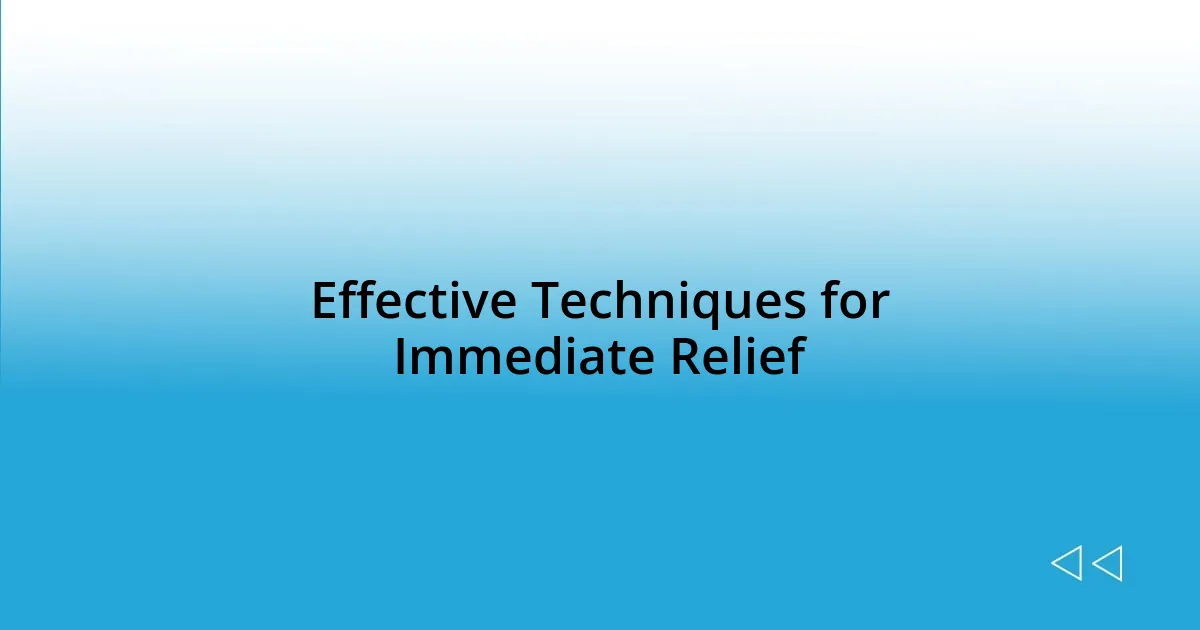
Effective Techniques for Immediate Relief
Effective Techniques for Immediate Relief
When stress strikes, I often rely on deep-breathing exercises as a quick fix. I remember the first time I tried this during an intense meeting—my heart was racing, and I worried I’d lose my train of thought. Taking a few slow, deliberate breaths not only calmed my heart but also cleared my mind, allowing me to speak more confidently.
Another technique that has brought me immediate relief is grounding exercises. Whenever I feel overwhelmed, I focus on the sensations around me—the texture of the chair I’m sitting on or the sounds of my environment. I once found myself in a crowded café, feeling anxious about a looming deadline. By concentrating on these details, my anxiety noticeably diminished, and I felt more anchored in the moment.
One more method I’ve found effective is engaging in physical activity. Whether it’s a brisk walk or a few minutes of stretching, moving my body has a way of clearing my mind. I recall a time when I was sweating bullets over an upcoming presentation. A few minutes of jumping jacks in my living room made me laugh at the absurdity of my stress, transforming my anxiety into energy.
| Technique | Description |
|---|---|
| Deep Breathing | Slow, deliberate breaths to calm mind and body. |
| Grounding Exercises | Focusing on physical sensations to anchor oneself in the present. |
| Physical Activity | Movement to release energy and shift mindset. |
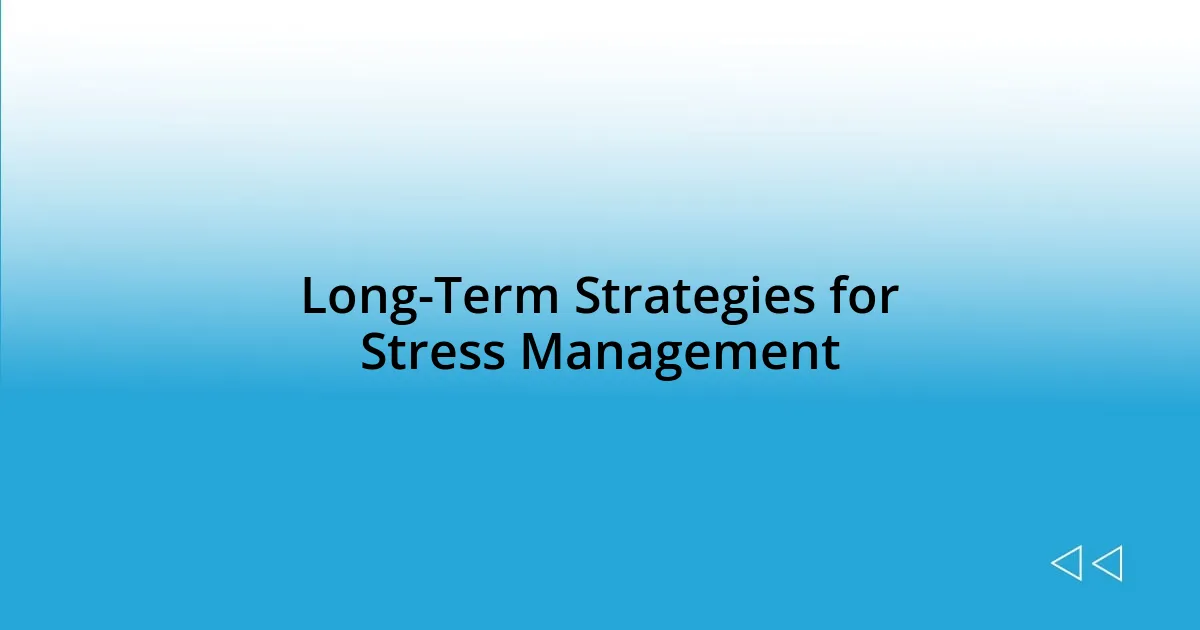
Long-Term Strategies for Stress Management
Finding long-term strategies for managing stress is crucial, especially when life feels relentless. Personally, I’ve woven physical activity into my daily routine—not just as a way to stay fit, but as a vital stress buffer. I remember those days when work pressures mounted, leaving me drained by the end of the day. A simple jog at sunset turned those burdens into a meditative experience, allowing me to reflect and recalibrate my mindset. Isn’t it fascinating how movement can shift our emotional state so profoundly?
Incorporating a consistent sleep schedule has also been a game changer for me. There was a time when I brushed off the importance of rest, thinking I could power through with caffeine. Yet, when I began honoring my body’s need for rest, I noticed my stress levels dropping. The clarity that came with a good night’s sleep was almost magical. Have you ever considered how sleep impacts your resilience against stress?
Regular social engagements have another important role in my chronic stress strategy. Simply scheduling a weekly catch-up with friends provides invaluable emotional support. I recall one evening sharing laughs over dinner when the weight of the week just melted away. Those connections remind me that I’m not alone in my struggles. Building and nurturing these relationships has become a vital part of my stress management practice—how about you?
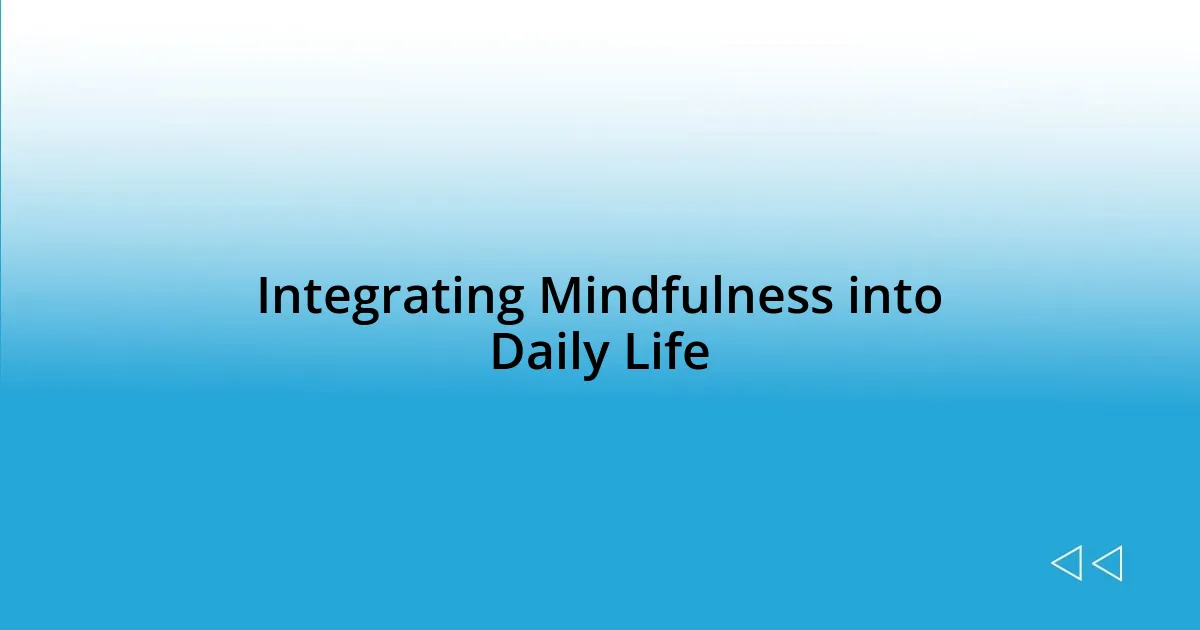
Integrating Mindfulness into Daily Life
When I think about incorporating mindfulness into my daily life, I’ve found that little moments can make a big difference. For instance, I started setting aside five minutes in the morning to sip my coffee mindfully. Instead of rushing through my routine, I focus on the warmth of the mug in my hands and the rich aroma of the brew. This simple practice has shifted my mornings from chaotic to peaceful, and it’s a gentle reminder of the importance of savoring the present moment.
Another strategy I’ve embraced is mindfulness during mundane tasks, like washing the dishes. At first, I saw it as just a chore, but then I decided to immerse myself in the sensations—the warm water, the texture of the soap, the sound of the dishes clinking together. This shift transformed what felt like a nuisance into a mini meditation session. Have you ever noticed how even the most routine activities can become a source of calm if we engage our senses?
I also discovered that incorporating mindfulness during my commute can be incredibly grounding. Rather than scrolling through my phone or zoning out, I pay attention to my surroundings—each tree passing by, the rhythm of the engine, and even the sounds in the background. One day, I was stuck in traffic and felt my frustration rising. But then I took a deep breath and shifted my focus to the vibrant autumn leaves fluttering outside my window. It was a subtle yet profound way to re-center myself and clear my mind before facing the day ahead. How do you find moments of mindfulness in your daily journey?

Evaluating and Adjusting Your Approach
Reflecting on my own experiences, I’ve learned the importance of regularly evaluating my stress management techniques. For instance, during a particularly stressful month last year, I realized my usual strategies weren’t working as effectively. I had to sit down with a journal, jotting down what felt good and what seemed just like another task on my to-do list. This process of introspection allowed me to identify that my workout routine had turned into a chore rather than a joy. Have you ever felt that way about something you once loved?
Adjusting my approach has become a necessary practice for me. I recall a time when I was deeply invested in yoga; however, I noticed I had started to dread my sessions. Instead of forcing myself through, I switched gears and tried a new activity—about a month of dance classes. I found not only a renewed joy in movement but also a fresh perspective on managing my stress. It was a game changer. How have changes in your routine influenced your mental health?
Sometimes, I stumble upon unexpected sources of calm that shape how I handle stress. Recently, I began experimenting with digital detox days. One weekend, I decided to unplug completely from social media and emails. The first few hours were tough, but soon I felt an overwhelming sense of relief—as if a weight had been lifted. This shift in my environment opened up a space for creativity that I hadn’t experienced in weeks. Have you ever tried stepping back from technology to see how it affects your overall well-being?











